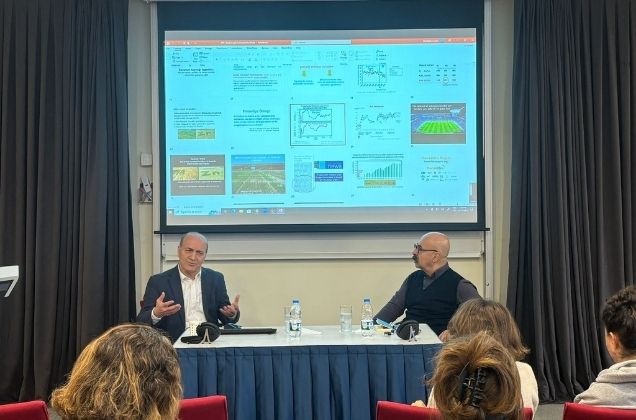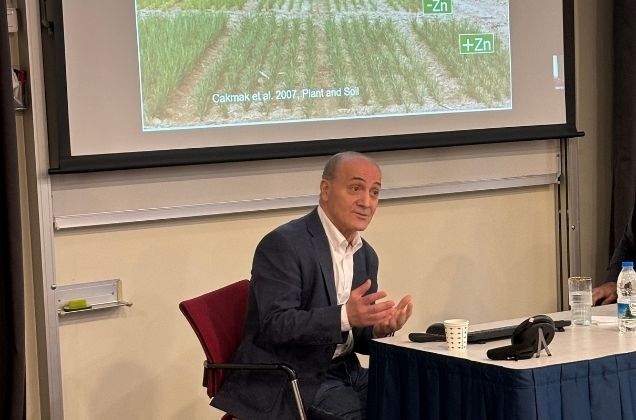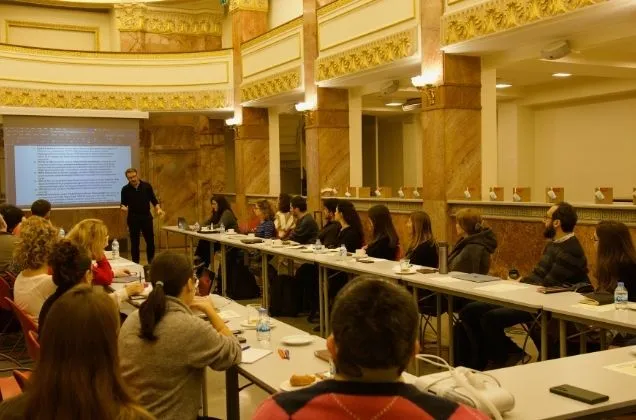24/12/2024
The seventh of the “From Farm to Table: Food, Culture, and Politics Talks” series organized by Sabancı University Istanbul Policy Center was held on December 17 at IPC Karaköy Minerva Han.

The talk, moderated by Prof. Dr. Zafer Yenal, Sabancı Business School Member and IPC Sustainability and Food Security Studies Coordinator, had Prof. Dr. İsmail Çakmak, member of Sabancı University Faculty of Engineering and Natural Sciences and one of the world’s leading figures in the field of plant nutrition and nutritional physiology.
Prof. Dr. İsmail Çakmak began the talk by sharing the successful results they obtained from studies aimed at eliminating zinc deficiency in Anatolian soils in the 1990s. Prof. Dr. Çakmak shared statistics on the use of NP/NPK fertilizers containing zinc following the Zinc Fertilizer Project, which started in 1993 and was financed by NATO in Turkey. In his presentation, he talked about the significant yield increases in wheat and the significant zinc increases in wheat grains.
“THERE IS ZINC DEFICIENCY IN OUR SOILS”
Emphasizing that there is a hunger for zinc and other micronutrients in the soil in Turkey and that this situation leads to hunger for zinc, iron, selenium, and iodine in human nutrition, Prof. Dr. Çakmak said, “The development and cultivation of high-yield grains to meet the food needs of the increasing population leads to the rapid depletion of minerals, especially microelements, in the soil, which causes negative results in people’s mineral nutrition. While 1 kilo of wheat contained approximately 50 mg of zinc in the 1900s, this amount began to decrease significantly with the green revolution and the increase in yields. Today, zinc has decreased to 20-25 mg per kilo in these grains. The quantity of microelements, especially zinc, in products such as bread and pasta has also shown significant decreases. This situation has increased the problem of hidden hunger in people who eat mainly grains.” Prof. Dr. Çakmak also underlined that the microelements mentioned have very valuable roles in body health, especially mental health, cognitive functions, thyroid hormones, and the immune system.
Prof. Dr. İsmail Çakmak, who also mentioned the Global Microelement Project, which Sabancı University carried out under his leadership in 15 countries between 2008 and 2022, said, “You can develop new wheat varieties rich in zinc through breeding, but since this leads to a decrease in yield, the fertilization strategy is the best strategy that is sustainable and acceptable to producers.”





